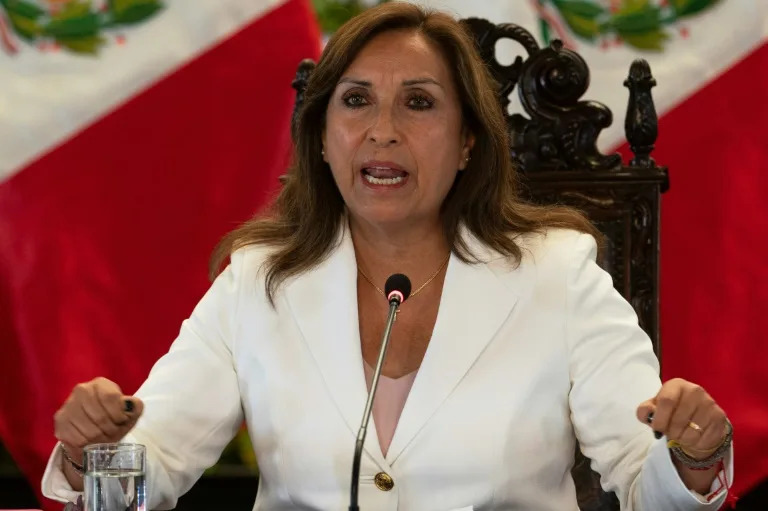Jean Luis ARCE
Tue, 7 February 2023

Peru has been rocked by two months of social upheaval with near-daily anti-government protests often spilling into violence in which at least 48 people have died.
Demonstrators angered by the arrest of former president Pedro Castillo are demanding the resignation of President Dina Boluarte, immediate elections, the dissolution of parliament and a new constitution.
But Boluarte refuses to step down and last week Congress shelved all attempts to bring forward elections slated for 2026, despite having tentatively voted in principle in December to hold them in 2024.
It has left the country mired in a political crisis that shows no sign of abating with protesters determined to maintain their pressure with rallies and road blocks.
Here, analysts discuss three ways the South American country could resolve the crisis.
- Resignation -
"The only (way out) is President Boluarte's resignation," said Paula Tavara, political scientist and professor at the Catholic University in Lima.
Power would then transfer to the head of Congress whose role would be to call fresh elections, although there is no constitutional time limit for that.
Boluarte was Castillo's vice president and took power after he was impeached and arrested on December 7, charged with rebellion for having attempted to dissolve parliament and rule by decree.
Although she is from the same left-wing party as Castillo, his supporters accuse her of treachery and are adamant she must quit.
Boluarte has dismissed such demands as "political blackmail."
She claims she has no intention of holding onto power and pushed for elections to be brought forward.
But Tavara says it is clear Congress has no intention of doing so since it voted down several bills proposing such anticipated polls, and will not now debate the subject again until August.
One such bill in December was approved, setting April 2024 as the new date, but Congress never ratified it in a necessary second vote.
Congress has thus left "the solutions in the hands of the Executive," said Tavara.
But Boluarte's resignation remains "highly improbable."
Tavara believes that Boluarte is afraid of losing her presidential immunity and having to "take responsibility for the consequences" of the protester death toll in the courts.
Rights organizations have accused the security forces of excessive use of force against demonstrators.
It is also against Boluarte's interests and those of the right-wing allies supporting her in parliament for her to resign, said political scientist Patricia Paniagua of the University of Granada.
"You can see this clear alignment of a strategy" between the two.
- Removal -
If Boluarte does not resign, she could be removed by Congress, as the constitution allows.
Parliament has a history of removing presidents with Alberto Fujimori (2000), Martin Vizcarra (2020) and Castillo (2022) all forced out in recent years, while Pedro Pablo Kuczynski (2018) jumped before he was pushed.
Rumors persist that left-wing parties will try to remove Boluarte, but this could be difficult to achieve with a two-thirds majority needed to do so.
"I cannot see it happening as it would also accelerate the end of this Congress" by bringing forward general elections, said Alonso Cardenas, a professor of political science at the Antonio Ruiz de Montoya university.
"Given the political immaturity" of those in government and in parliament, it is unlikely they would sacrifice their own ambitions for the good of the country, added Cardenas.
In any case, "they don't have the votes" to remove Boluarte, says Paniagua, who nonetheless believes the issue "will be discussed."
- Waiting for storm to pass -
The refusal of Congress to advance elections could lead to the protest movement growing and expanding, particularly in the capital.
"Unfortunately that week of no (election) decision being taken brings us closer to that scenario," said Tavara.
But at the same time, Paniagua believes the government is banking on protesters becoming weary and giving up, allowing the president and Congress to see out their mandates until 2026.
"The response in the street is energetic, it's firm .... but can this last over the medium to long term?" said Paniagua.
Paniagua says Boluarte's silence after Congress shelved her attempts to bring forward elections suggest both branches of power are prepared to continue "turning their backs on what is happening in the street."
Tavara believes the government could survive through "a very serious act of contrition," such as replacing the cabinet, punishing those responsible for protester deaths and opening up dialogue with protesters.
jla/pb/ll/bc/ec
No comments:
Post a Comment